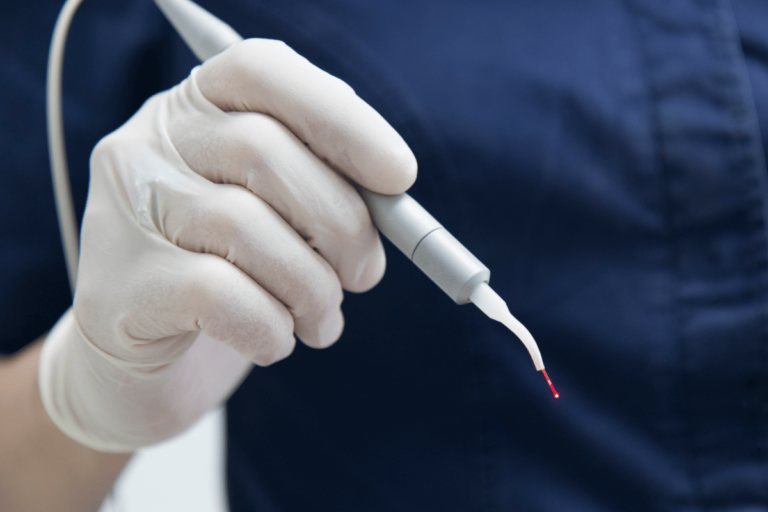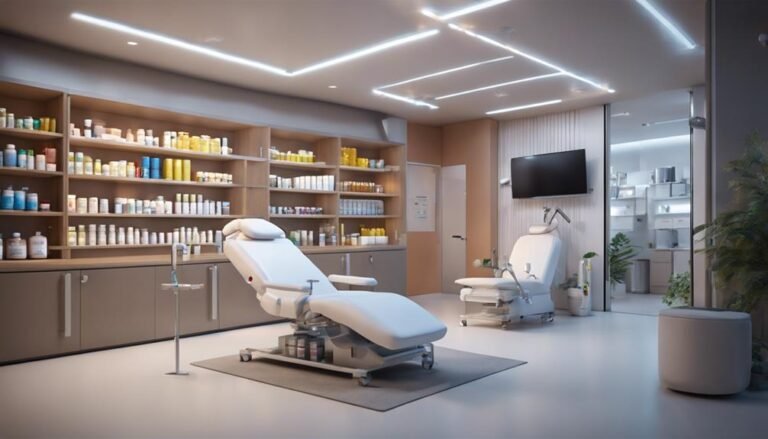Life Line Screening Services Review: Preventative Health or Unnecessary Cost?"
When considering Life Line Screening Services, weigh the benefits of preventive healthcare against potential costs. The screenings aim to detect health issues early for timely intervention and improved outcomes. However, critics raise concerns about the accuracy and ethical implications. Evaluating personal risk factors and consulting healthcare professionals can aid in decision-making. It's vital to research and compare costs to guarantee justifiability. Making informed choices tailored to your health needs can lead to better long-term well-being. Explore the balance between preventive health advantages and costs for a thorough evaluation.
Key Takeaways
- Life Line Screening offers various preventative health screenings for early detection.
- Consider the accuracy and benefits of screenings to make informed decisions.
- Evaluate the cost-effectiveness and necessity based on individual health risks.
- Beware of overdiagnosis risks and unnecessary treatments.
- Consult healthcare professionals for guidance on screening alternatives.
The Rise of Preventative Healthcare
The trend towards preventative healthcare has been steadily increasing in recent years, emphasizing the importance of early detection and intervention to maintain peak health. Preventative measures are key components of healthcare trends that focus on addressing health issues before they escalate. By implementing preventive strategies such as regular screenings, vaccinations, and lifestyle modifications, individuals can reduce their risk of developing chronic conditions and improve their overall well-being.
Healthcare trends indicate a shift towards a proactive approach to health, moving away from a reactive model that primarily treats symptoms after they appear. Preventative measures play an essential role in this shift by empowering individuals to take charge of their health and make informed decisions to prevent diseases. Through routine check-ups and screenings, healthcare providers can detect potential health concerns early, enabling timely interventions that can have a significant impact on health outcomes.
Embracing preventative healthcare not only promotes individual health but also contributes to the overall efficiency of healthcare systems by reducing the burden of preventable diseases. As healthcare trends continue to prioritize prevention, the emphasis on early detection and intervention will likely remain a fundamental aspect of maintaining excellent health.
Understanding Life Line Screening Services
You can gain valuable insight into the screening procedures offered by Life Line Screening Services, which play a vital role in early detection of potential health issues.
Understanding these procedures can help you appreciate the benefits of early detection, such as timely intervention and improved outcomes.
Embracing these services may empower you to take proactive steps towards safeguarding your health and well-being.
Screening Procedures Offered
How do the screening procedures offered by Life Line Screening Services contribute to a comprehensive understanding of your health status? Life Line Screening Services provides a variety of screening procedures aimed at detecting potential health issues early on. Let's take a closer look at the screening accuracy and cost comparison for some of the key tests:
| Screening Procedure | Screening Accuracy | Cost Comparison |
|---|---|---|
| Carotid Artery Ultrasound | High accuracy in detecting blockages | Generally cost-effective compared to hospital tests |
| Atrial Fibrillation Screening | Effective in identifying irregular heart rhythms | Affordable option for early detection |
| Abdominal Aortic Aneurysm Screening | Accurate in detecting aneurysms | Cost-efficient compared to traditional medical facilities |
| Peripheral Arterial Disease Screening | Detects circulation problems in extremities | Economical choice for preventive care |
| Osteoporosis Risk Assessment | Provides insight into bone density | Cost-effective screening option for bone health |
These screening procedures, with their focus on accuracy and affordability, can play an essential role in proactive health management.
Benefits of Early Detection
Early detection of health issues through Life Line Screening Services can greatly impact your proactive approach to managing your well-being. By utilizing these services, you gain access to valuable health education that can empower you to make informed decisions about your lifestyle and healthcare. Life Line Screening Services leverages medical advancements in screening technologies to detect potential health concerns at an early stage, allowing for timely intervention and treatment.
One of the key benefits of early detection is the ability to identify risk factors for various health conditions before they progress to a more serious stage. This proactive approach can lead to better health outcomes and potentially lower healthcare costs in the long run. Additionally, by addressing health issues early on, you have the opportunity to make necessary lifestyle changes that can positively impact your overall well-being.
Benefits of Early Detection
Timely detection of health issues through screening services can greatly enhance treatment outcomes and quality of life. Health education plays an important role in empowering individuals to take charge of their well-being. By participating in screening programs, individuals can gain valuable insights into their health status and potential risk factors. This knowledge equips them with the information needed to make proactive lifestyle changes and seek appropriate medical interventions. Early detection not only enables timely treatment but also facilitates disease prevention strategies.
Regular screenings can detect health issues at an early stage when treatment is often more effective and less invasive. For example, identifying high blood pressure through screenings allows for early intervention to prevent complications such as heart disease and stroke. Additionally, screenings for conditions like diabetes can prompt lifestyle modifications that may prevent the progression of the disease. Ultimately, the benefits of early detection extend beyond individual health outcomes to encompass broader public health initiatives aimed at reducing the burden of chronic diseases.
Criticisms and Controversies
You should consider the criticisms and controversies surrounding Life Line Screening Services. Some concerns include the potential overhyping of health benefits, questions about the accuracy of the screenings provided, and ethical issues that have been raised.
Evaluating these points can provide a more thorough understanding of the service's limitations and areas for improvement.
Overhyped Health Benefits
Critics have raised concerns about the overhyped health benefits associated with Life Line Screening services. While the screenings may detect certain conditions, there is a risk of overdiagnosis, leading to unnecessary treatments that can potentially harm individuals. Overemphasizing the benefits of these screenings may create a false sense of security among consumers, potentially leading them to make uninformed decisions about their health.
To illustrate the issue of overdiagnosis and unnecessary treatments, consider the following table:
| Concerns | Implications |
|---|---|
| Overdiagnosis of minor conditions | Unnecessary stress for individuals |
| False positives leading to further unnecessary tests | Financial burden on individuals |
| Misinterpretation of results | Potential harm from unnecessary treatments |
| Limited evidence on long-term benefits | False sense of security for individuals |
| Lack of follow-up care post-screening | Delayed diagnosis of actual health issues |
It is important for individuals to critically evaluate the true benefits of Life Line Screening services and consider the potential risks associated with overdiagnosis and unnecessary treatments.
Questionable Screening Accuracy
Questionable Screening Accuracy has been a topic of ongoing debate and scrutiny within the domain of Life Line Screening services. Concerns revolve around screening limitations that may lead to false positives. While Life Line Screening aims to provide preventative health measures through various screenings, critics argue that the thoroughness of these screenings may not always be reliable.
One of the main issues raised is the potential for false positives, where individuals may be erroneously identified as having a particular condition or risk factor. This can lead to unnecessary stress, further testing, and even unnecessary treatments. Additionally, the breadth of some screening methods employed by Life Line Screening have been questioned, with critics suggesting that they may not always provide a thorough or accurate assessment of an individual's health status.
As you consider utilizing Life Line Screening services, it's essential to be aware of these criticisms regarding screening accuracy. It's advisable to research and understand the potential limitations and risks associated with the screenings offered to make informed decisions about your health and well-being.
Ethical Concerns Raised
Amid ongoing debates regarding the accuracy of Life Line Screening services, ethical concerns have been raised, shedding light on criticisms and controversies surrounding the company's practices. One of the primary ethical dilemmas associated with Life Line Screening is the issue of overdiagnosis and overtreatment. Critics argue that the screenings offered by the company may lead to unnecessary medical interventions, causing harm rather than benefit to individuals. This raises questions about the true cost effectiveness of the services provided.
Furthermore, there are concerns about the marketing tactics employed by Life Line Screening. Some critics argue that the company uses fear-based advertising to attract customers, potentially exaggerating the benefits of their screenings while downplaying the risks. This approach can exploit individuals' anxieties about their health to drive sales, raising ethical red flags about the company's practices.
In light of these ethical concerns, it's essential for consumers to carefully evaluate the information provided by Life Line Screening and consider the potential risks and benefits before opting for their services.
Making Informed Health Decisions
When contemplating Life Line Screening services, it's important to gather all relevant information to make informed health decisions. Making well-informed choices about your health can have a substantial impact on your well-being in the long run.
Here are three essential points to ponder:
- Research: Take the time to investigate the screening services offered by Life Line Screening. Look into the benefits, potential risks, and the scientific evidence supporting the effectiveness of these screenings.
- Consult Healthcare Professionals: Before deciding on any screening service, consult with your primary healthcare provider or a specialist. They can offer valuable insights based on your medical history and individual health needs.
- Evaluate Personal Risk Factors: Take into account your age, family history, lifestyle choices, and existing medical conditions when determining whether a particular screening is suitable for you. Tailoring your decisions to your specific risk factors can lead to more effective health outcomes.
Financial Considerations and Alternatives
Considering the financial aspects and exploring alternative options are essential steps when evaluating Life Line Screening services. Cost comparison is important to determine if the services provided align with the fees charged. While Life Line Screening offers packages ranging from $149 to $1499, it's important to assess if these costs are justifiable compared to similar services available through healthcare providers or other screening centers. Additionally, investigating insurance coverage can greatly impact the out-of-pocket expenses. Some insurance plans may cover preventive screenings, reducing the financial burden on individuals.
To help you evaluate the financial aspects better, here is a comparison table outlining the costs associated with Life Line Screening services and potential alternatives:
| Service | Life Line Screening Cost | Alternative Option Cost |
|---|---|---|
| Basic Screening Package | $149 | $100 – $300 |
| Comprehensive Package | $1499 | $500 – $1000 |
| Insurance Coverage | Limited coverage | Potential full coverage |
| Additional Tests | $70 – $130 per test | $50 – $100 per test |
| Follow-up Consultations | Included | $50 – $200 per session |
Analyzing these factors can assist you in making an informed decision regarding the financial implications of opting for Life Line Screening services.
Conclusion
In summary, when considering Life Line Screening Services, it's important to weigh the benefits of early detection against potential criticisms and controversies. Making informed health decisions is essential in maneuvering the complexities of preventative healthcare.
Remember, an ounce of prevention is worth a pound of cure. Consider your financial situation and explore alternative options before making a decision on whether this service is worth the cost.







